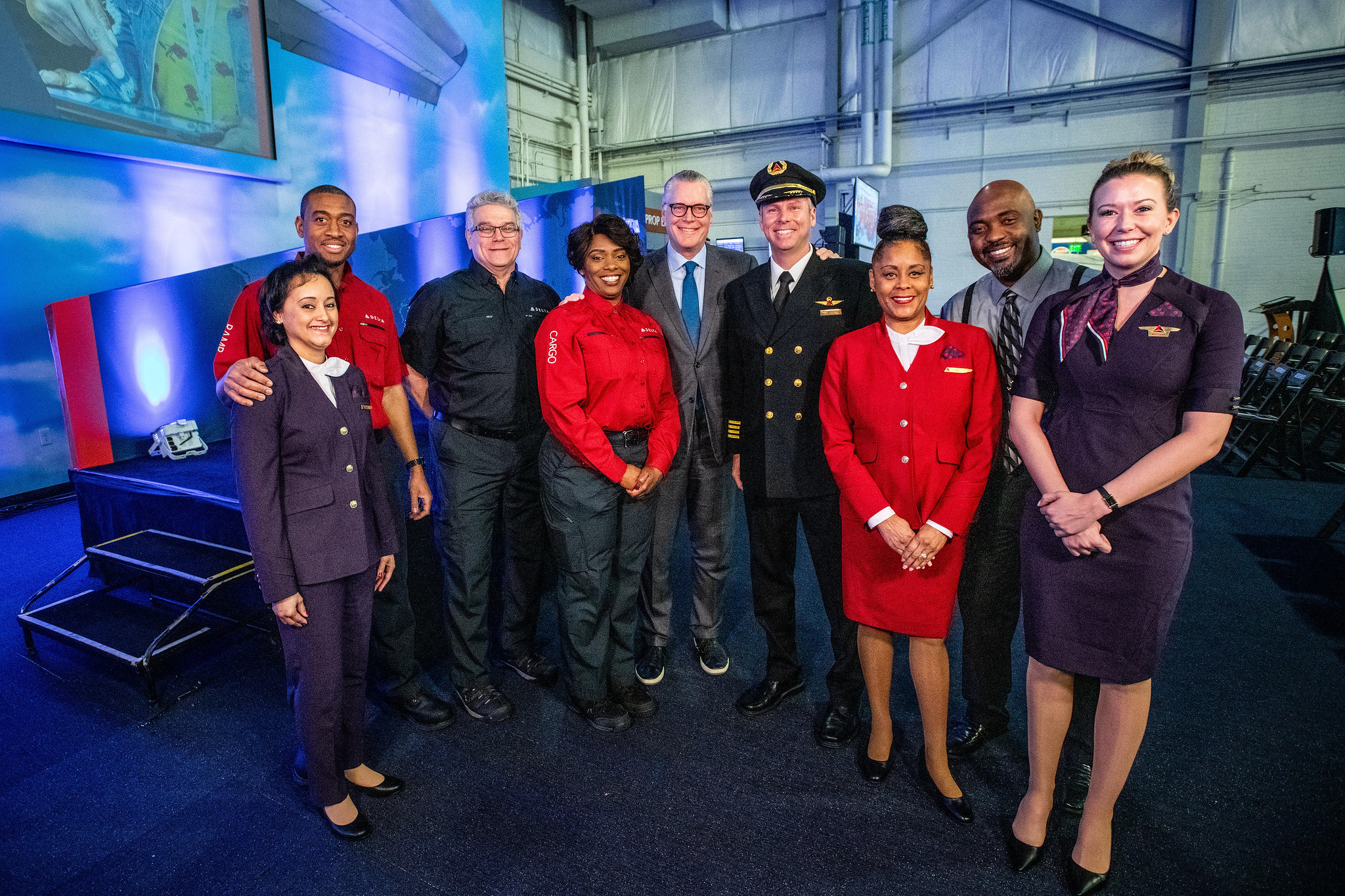Delta Air Lines famously rejects 99% of candidates who apply for the 10,000 jobs the airline fills each year. The number of disappointed candidates is most keenly felt in cabin crew recruitment – last year, Delta received around 300,000 applications for just 1,000 positions. Clearly, the vast majority of candidates aren’t going to receive the news that they are wanting to hear and it’s a very similar case at many other airlines.
So how can airlines like Delta or the likes of British Airways, Emirates or Qantas make the recruitment process better for the thousands of candidates they reject each year? After all, as Jennifer Carpenter, Delta’s vice president of talent acquisition puts it: “Every candidate is either a colleague or a customer.”
The impression a candidate has of an airline after they leave the recruitment process – whether they’ve been hired or not – can have a big impact on its brand image and ultimately, even it’s bottom line according to Carpenter.
“For good or for bad, a tweet or text or review site post travels around the world in moments, creating either a halo or a hellish effect for your brand,” Carpenter explains.
So how is Delta improving the recruitment process? And what could other airlines learn? It’s simple, Carpenter says Delta is “designing for the disappointed.”

At a recent conference, Carpenter spelt out five ways Delta wanted to improve the recruitment process for everyone:
1. Use video interview tools
Admittedly, we’re not a big fan of video interviews – especially those on-demand services – but Delta thinks these tools allow candidates to better tell their own story.
“We are all far more than what can fit on a nine-by-eleven inch piece of paper. So we’re using technology to allow candidates to add their voice to the recruiting experience and to share their stories,” Carpenter explains.
And Delta is trying to make video interviews a little less daunting – in the past, candidates had just one shot to record an answer. With a simple software adjustment, Delta has turned on the ability to re-record an answer. Now that’s a massive improvement that instantly removes so much unnecessary pressure.
Around 60% of candidates have used the re-record option and this little change has seen candidates satisfaction jump seven points.
Delta also thinks on-demand video interviews make the initial selection process fairer – these services use AI to rank and select candidates, removing the potential for recruiter bias at this crucial stage of the process.
2. Make the application process shorter
Many airlines use online application systems known as ‘Applicant Tracking Systems‘ – the problem with many of these services, though, is that it can take a lot of time and effort to complete the initial application process. In fact, Delta estimates that its old application workflow took candidates around an hour to complete.
“Could you imagine booking a plane ticket with Delta and it taking an hour?” Carpenter comments on this excruciating application process.
Delta has streamlined the initial application process and made it mobile friendly. Rather than putting off potentially excellent candidates, the new system makes it easy for anyone to apply.
“So often, we design experiences that actually discourage candidates instead of catering to the curious. With unemployment hovering around 4%, if you’re putting up any roadblocks to the curious, you’re doing so at your own peril.”
3. Let candidates make informed decisions
Maybe being a flight attendant isn’t actually the job you thought it was? Are airlines doing enough to truly inform candidates about what the job entails and what will be expected of them?
Delta thinks not – that’s why it’s created a series of videos that show the realities of being a flight attendant, warts and all. It’s not about discouraging candidates but if applicants had more realistic information about being a flight attendant (rather than what the media often portrays the flight attendant life as like) then candidates could make an informed choice and “self-select out” if they want.
Then there’s keeping candidates informed about the next steps – a digital magazine details the whole recruitment process with helpful FAQ’s and tips on how to perform their best. No more guessing what the airline wants to see.
4. Be honest and don’t keep candidates hanging
No one likes to be rejected – it can be truly heartbreaking but even worse than rejection is being ignored. Will you ever hear back from the airline or has your application disappeared into the ether? It’s all too common and it feels like the airline doesn’t care.
“I have a theory on why we make them wait. It’s easier to be nice than it is to be kind,” Carpenter muses. Being nice means not sharing the bad news, while being kind is actually sharing the outcome in a timely and compassionate way.
“It’s really uncomfortable to be transparent to someone, especially when you have news they don’t want to hear. But we think that by being transparent, we can create trust. Candour creates connections with our candidates.”
Jennifer thinks candidates would much rather receive bad news quickly – at least then, they can concentrate their efforts on the next opportunity or in improving themselves for the next application.
5. Feedback and self-improvement
How often have we heard the mantra that an airline can’t provide candidate feedback because they receive too many applications? Well, maybe they should try harder?
Delta’s doing exactly that – the airline recognises that rejected candidates are desperate for feedback. They can use that information to improve and make their application better in the future.
During the recruitment process, Delta’s hirers create short “talent cards” for each candidate – it lists a few bullet points of the good and the bad, and importantly allows candidates to gain a glimpse of how recruiters see them.
For many rejected candidates, it’s a lack of skills that fails them. Delta wants to close that skills gap by providing free online training tools to help candidates.
“Wouldn’t it be cool if we could help candidates close skill gaps — give them that gift of knowledge throughout their recruiting experience?” she says. “It’s certainly one way of tempering people’s disappointment if they don’t get the gig,” Jennifer explains.
So often, the application and recruitment process seems designed to solely benefit the airline without any thought of the candidate. Applicants are expected to their all but receive very little, if nothing back from the airlines they apply for. It’s great to see Delta is making a positive change – let’s hope more airlines follow their lead.
This story was adapted from an article on the LinkedIn Talent Blog.




